The 5 Different Types of Entrepreneurs: Unlock Your Entrepreneurial Potential to Optimize Performance And Achieve Success
As a business entrepreneur, it is essential to understand your unique characteristics and how they align with your business objectives. By identifying your entrepreneur type, you can optimize your performance and overcome obstacles that may impede your progress. There are 5 different types of entrepreneurs, each with its own strengths and limitations. Take the time to evaluate which type aligns with your strengths and goals. With this knowledge, you can confidently move forward and achieve success in your business ventures. - Author: Albert Sugiharto.
The visionary innovators
Innovators can be identified by their strong drive to create a legacy. They do not want to do things that others have done before and are very focused on creating new and unique ideas. This type of entrepreneur is always curious about new things, highly intelligent, and good at getting around to doing things with the least amount of effort.
The innovators’ main business strategies are strong product differentiation and creating great things that stand out from the crowd. They could be very passionate and obsessive about their business idea, to the extent that they will create a new market for their product. Common traits for this entrepreneur: always on the lookout for patterns, brilliantly lazy, learning and taking notes obsessively, aiming for perfection, and embracing calculated risks.
Innovators benefit from being in the spotlight for the success of their businesses. They play by their own rules and can secure their market relatively easily as they enter a whole new market. However, being a visionary comes with a need for huge initial capital to develop and test the idea. The novelty of the idea could further cause challenges from shareholders and potential investors, thus needing a longer timeframe for success.
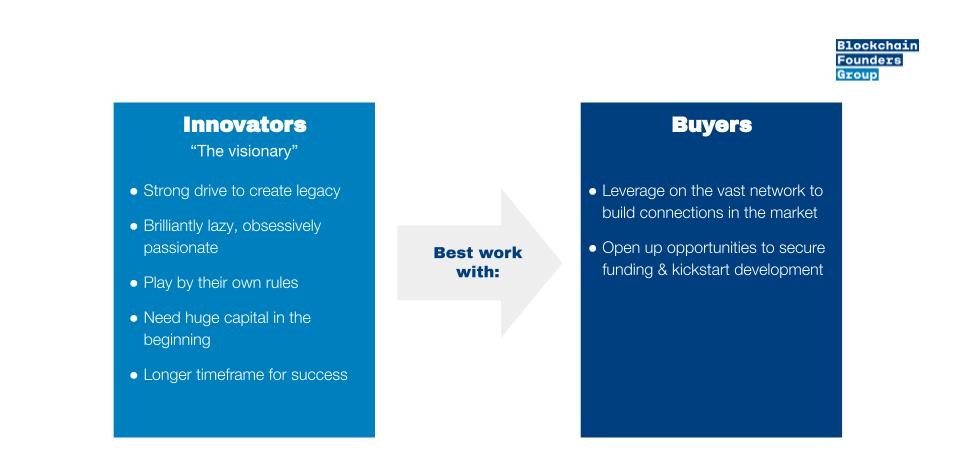 Figure 1. Innovators compatibility with buyers
Figure 1. Innovators compatibility with buyers
Notable innovators: Steve Jobs, Bill Gates, and Larry Page.
The best type to work with: Buyers. While innovators may be focused on creating new markets, initial investors may be hesitant to provide the necessary funding to develop their ideas. By working closely with buyers, both parties can benefit from the potential for novelty, the opportunity to build connections, and the ability to secure the necessary funding.
The determined hustlers
While innovators are big on ideas and legacy, hustlers are big on dreams. They approach each business at a small and steady pace, working very hard to achieve their dream. They have a laser-focused approach to reaching their goal, similar to a warrior at war.
Hustlers tend to set aside the importance of raising capital and focus on getting their hands dirty and doing whatever they can. They sacrifice short-term comforts in return for becoming big in the future. Networking is a big part of hustlers’ work, as they see the value in creating opportunities through these networks.
Hustlers easily outwork other types of entrepreneurs as they work very hard and put a lot of effort into their work. They do not give up easily and always try out new venues to make sure their ideas work. They develop a thick skin and see setbacks and rejections as a needed process. However, hustlers tend to suffer from burnout due to overworking. They could also wear out other team members who do not share the same traits, potentially causing a rift within the team. They might take longer to achieve their dreams compared to other types of entrepreneurs due to their reluctance of raising capital early on.
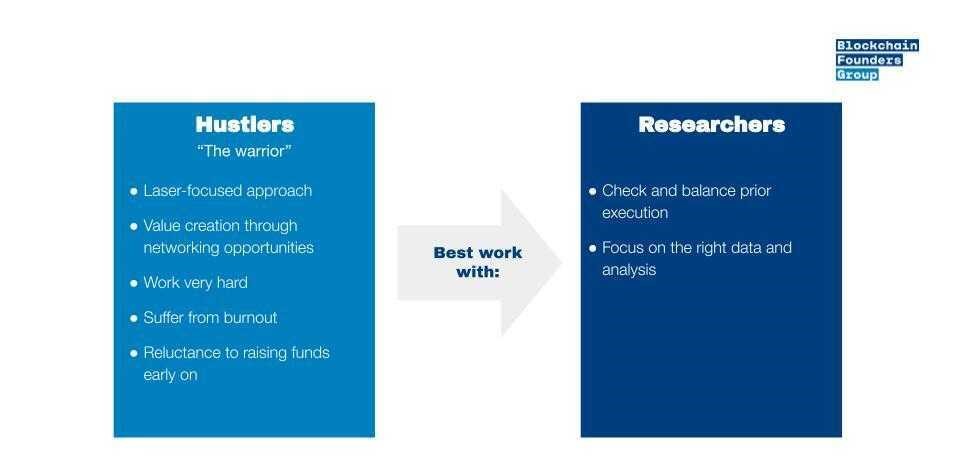 Figure 2. Hustlers compatibility with researchers
Figure 2. Hustlers compatibility with researchers
Notable hustlers: Zig Ziglar, Walt Disney, and Mark Cuban.
The best type to work with: Researchers. Hustlers’ tendency to be overly passionate will be balanced and checked with researchers’ risk-averse attitude and focus on getting the right data and analysis prior to executing ideas.
The opportunistic imitators
Imitators can be seen by their passion for improvement. They are not necessarily trying to reinvent the wheel, but focusing on ways to make current products or services better. They improve and build on a tested product while solving the current problems. They are part innovators and part hustlers, intending to succeed by remodeling what works for others and making it more relevant.
As they are opportunistic, imitators do not necessarily see their business as a long-term means. They often play it safe and focus on iterating features to make it more appealing to currently served customers. As they are going into an already existing market, they have an easier time gaining traction. This in turn could be seen as a potential threat by existing players, which sometimes ends up with their business being acquired at a hefty sum by the competitor to maintain their leadership within the market.
Imitators are risk-takers who have strong convictions in what they do to achieve their vision. They benefit from not having to start from scratch and start right away by refining existing ideas. They could compare whether their product has a competitive advantage against competitors and can learn from their mistakes. Imitators’ pitfall is that their ideas might not sound very exciting as it is always being compared to the original idea. They also have to keep catching up with their competitors to maintain a competitive edge.
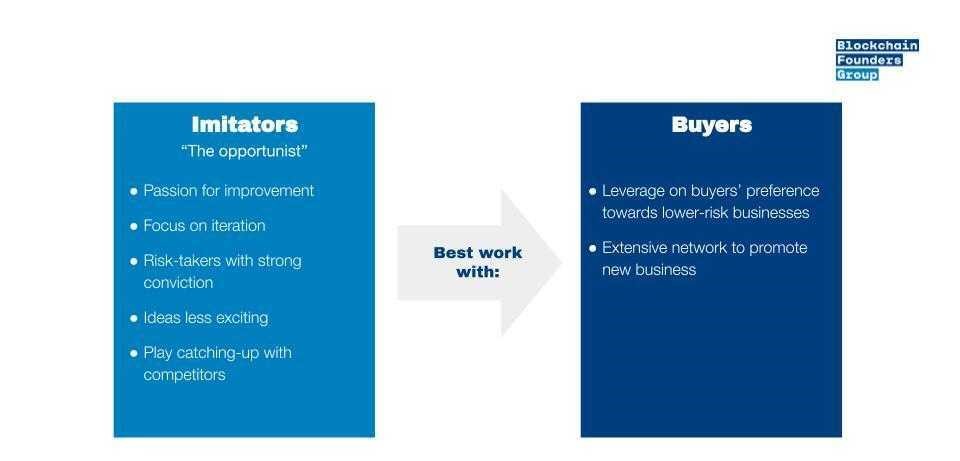 Figure 3. Imitators compatibility with buyers
Figure 3. Imitators compatibility with buyers
Notable imitators: Samwer brothers (Alando) and Lamar Muse (Southwest Airlines).
The best type to work with: Buyers. Entering an established market, imitators can take advantage of buyers' preference for lower-risk business opportunities, and leverage their extensive networks to achieve success.
The foolproof researchers
Researchers are the most risk-averse type of entrepreneurs. They believe that failure is not an option, hence they spend a lot of time gathering relevant information and analyzing them from all different angles. They are strong believers in data and facts rather than instincts and intuitions. Although they believe in the originality of ideas, they want to research every possible scenario and outcome.
In setting up a business, researchers' are perfectionists as their main goal is to create a foolproof business with a high probability of success. Granted, the time spent in analyzing combined with the many contingency plans allows researchers to minimize potential fallout during the company building process.
Critical thinkers and visionaries, researchers thrive from their focus on data and information. They will not start venturing into a business until they are assured this has the minimum potential of failing. This is further added with well-thought and detailed business plans. However, they tend to move slower, to the extent of not making the move due to ingrained perfectionism. They could become the victim of information overload and become the ones that hamper progress in company building due to their risk averseness.
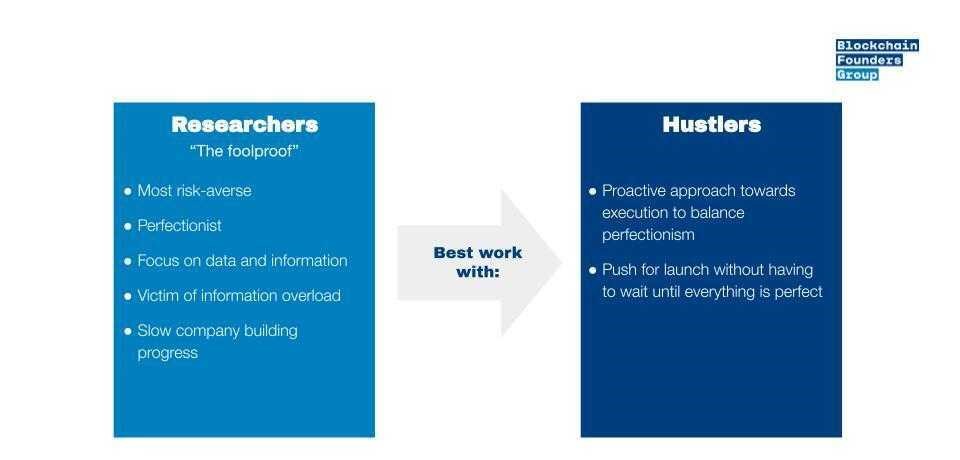 Figure 4. Researchers compatibility with hustlers
Figure 4. Researchers compatibility with hustlers
Notable researchers: Henry Ford, Peter Thiel (PayPal), Ingvar Kamprad (IKEA).
The best type to work with: Hustlers. Hustlers’ focus on execution and proactive approach will complement well with researchers’ perfectionism. This way, they could launch a business without having to delay until all aspects are completely polished.
The money-magnet buyers
Buyers are a unique type of entrepreneurs, as they are comparably starting with a good amount of wealth. They are usually seasoned entrepreneurs who have built their success and wealth over the years and have experience in running businesses successfully. Rather than building from the ground up, they often focus on opportunities to acquire a business that has a solid foundation.
Buyers can be identified from the vast network of connections they have from their past ventures. This proves to be their most valuable asset, as most of the time they also act as networkers to bridge the gap between new entrepreneurs and potential investors. Further, when they invest in a business, they could tap into this network to appoint people to run the business for them.
As they already have a solid foundation, buyers lean toward more established and less-risky ventures. They focus more on whether the product has a market and if this could multiply their current wealth. They could act as a great mentor for new entrepreneurs and usually already established a strong personal brand. The downside for buyers is that they often have to pay a hefty amount to run and/or acquire a project. Not having to do the “dirt work” might leave them with the risk of buying businesses that have problems, as they are not involved in the day-to-day operations.
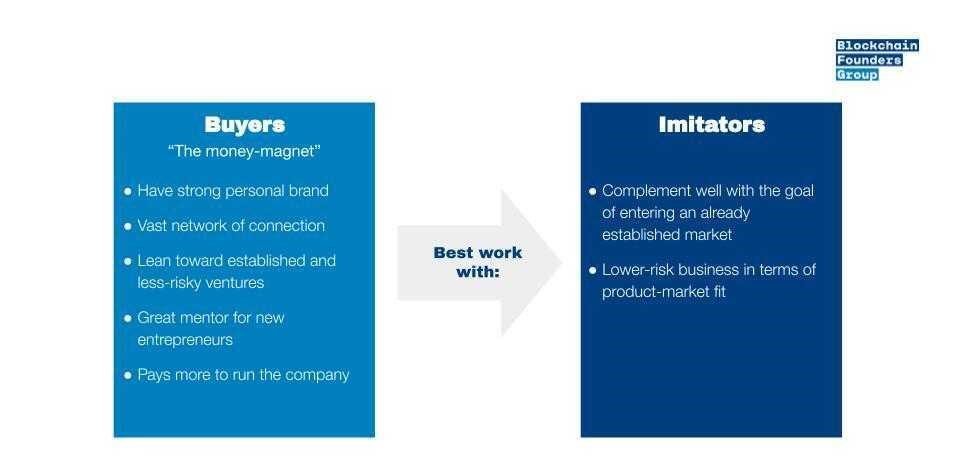 Figure 5. Buyers compatibility with imitators
Figure 5. Buyers compatibility with imitators
Notable buyers: Warren Buffett and Jack Welch.
The best type to work with: Imitators. Imitators' preference to enter established markets aligns well with buyers' inclination towards lower-risk ventures, making them a good match in terms of growing their business and maximizing opportunities.
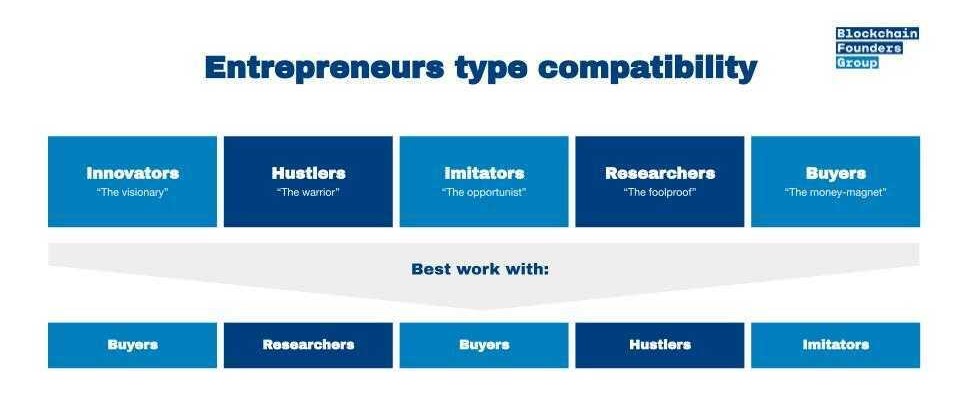 Figure 6. The different entrepreneurs' type compatibility
Figure 6. The different entrepreneurs' type compatibility
How to use this information for your startup’s success
Being an entrepreneur is not one-size-fits-all. Each type of entrepreneur has its own strengths and weaknesses. Knowing what type of entrepreneur you are can help you run your business and work with your team. This is especially important for an early-stage startup kickstarting a business and looking for partners. It's also important to know your founder-market-fit - that is your unique advantage and experience within a specific industry - to make sure your product is well suited for your target market. When starting a business, finding a partner whose strengths complement your own is best to increase your chances of success.

About Blockchain Founders Group
Blockchain Founders Group (BFG) is the driving force behind web3 innovation. As a company builder, we bring together a team of blockchain visionaries, experienced entrepreneurs, and industry experts, all committed to nurturing emerging talent. Our BFG acceleration programs serve as your springboard for launching blockchain startups, transforming concepts into reality in just 2-3 months. Each cohort develops 5-8 unique web3 ideas, and selected projects will be financially supported with 70,000 - 100,000 EUR, along with access to our extensive network. Join us in shaping the future of web3!
Stay updated by connecting with us on LinkedIn, Medium, Twitter, and YouTube.
Contact: Max Zheng, Head of Corporate Development & BFG Superstars Program, max.zheng@blockchain-founders.io
Subscribe by email
Share this
You May Also Like
These Related Stories
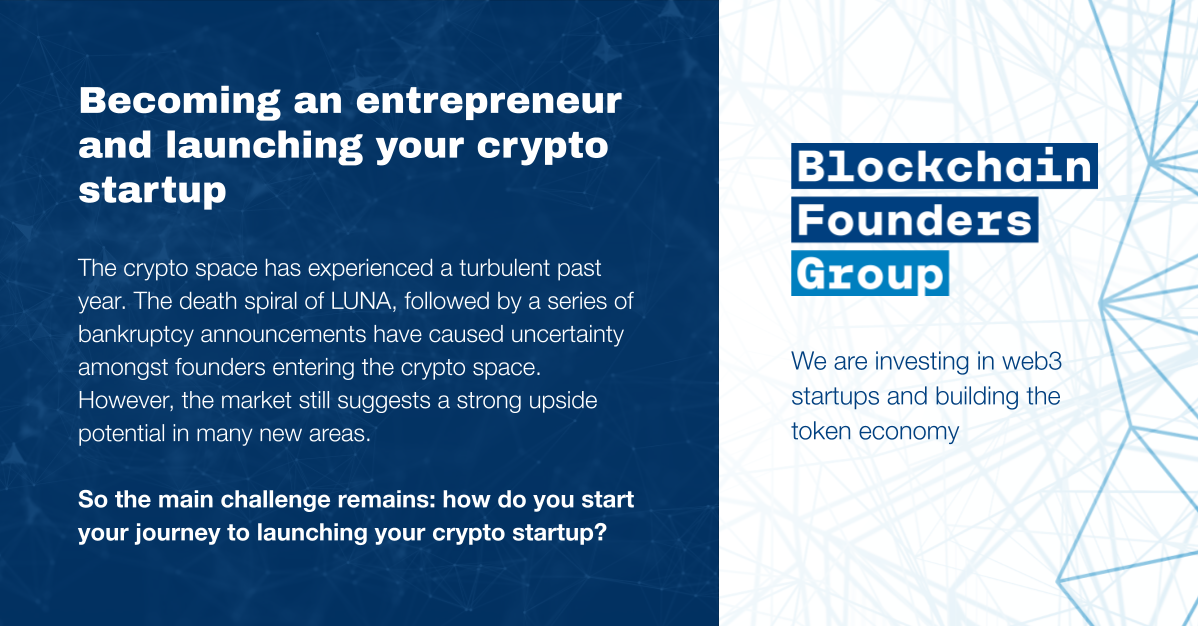
Becoming an entrepreneur and launching your crypto startup
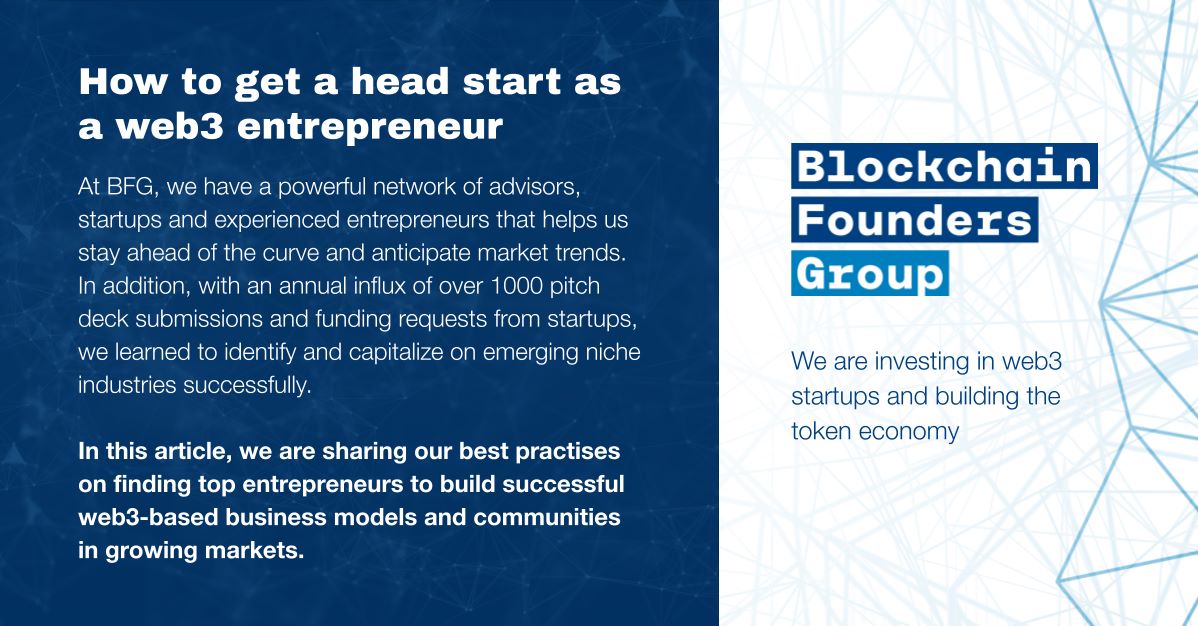
How to get a head start as a web3 entrepreneur
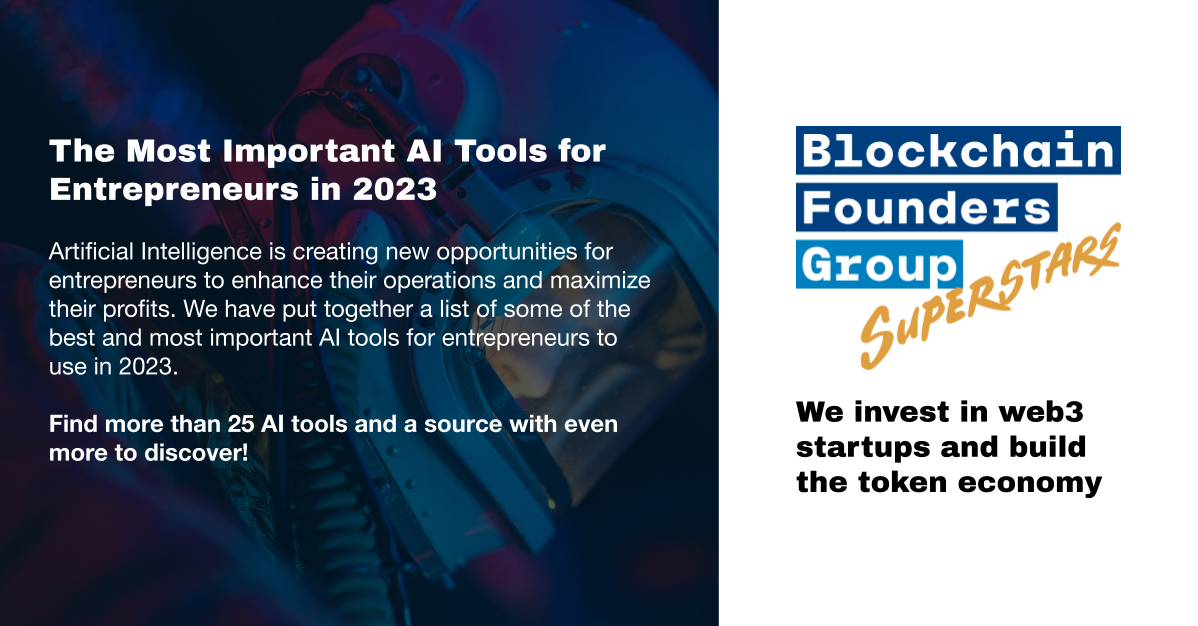

No Comments Yet
Let us know what you think